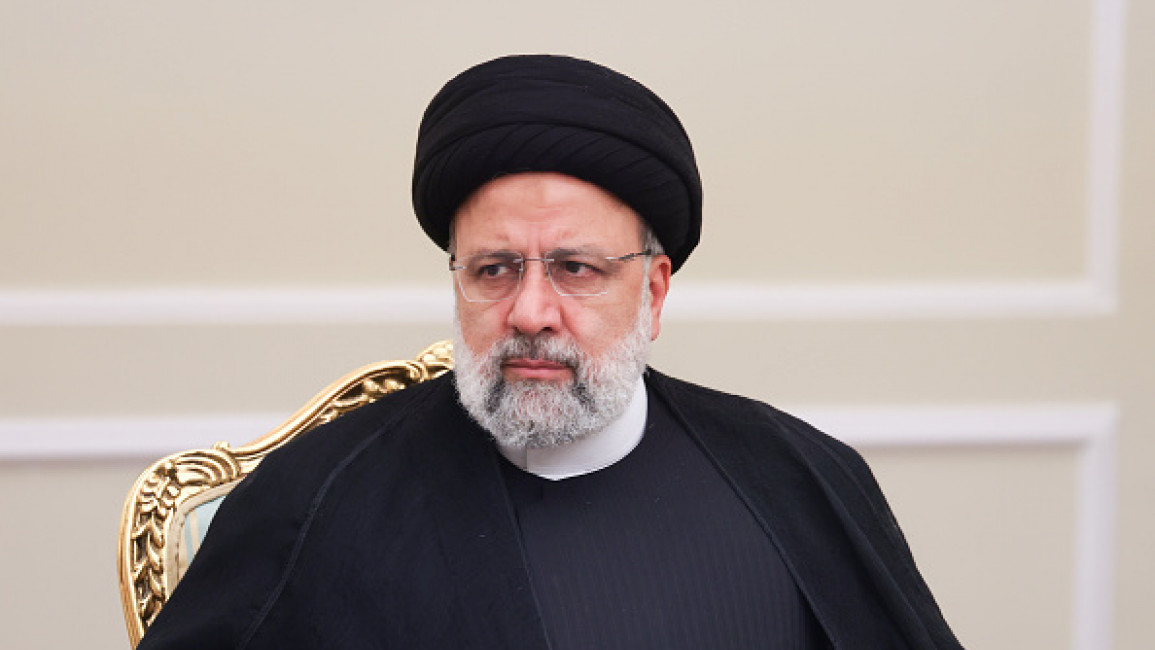Iran: Who was President Ebrahim Raisi, killed in the Varzaqan helicopter crash?
Ebrahim Raisi, Iran's hardline president who was elected in 2021, was declared dead early on Monday, alongside other senior politicians, following a fatal helicopter crash in Iran's East Azerbaijan region.
Raisi served as the eighth president of Iran, and was often described as a protege and potential successor of the country's Supreme Leader, Ayatollah Ali Khamenei.
Who was Ebrahim Raisi?
Prior to his tenure as president, the ultra-conservative Raisi started his career as a prosecutor in various areas of Iran, including the capital Tehran, and went on to establish connections with Iran's religious and judicial elite.
Back in 1988, when he was only 27, Raisi was part of a four-person committee overseeing the extra-judicial execution of political prisoners. According to Amnesty International, "thousands of political dissidents were systematically subjected to enforced disappearance in Iranian detention facilities across the country and extrajudicially executed pursuant to an order issued by the Supreme Leader of Iran".
An estimated 4,000 to 5,000 prisoners were killed. Most of them were from the People's Mujahideen armed opposition group, or from left-wing parties.
In 2017, he made his first attempt at a run for the presidency, having served as one of the Popular Front of Islamic Revolution Forces' presidential candidates. Raisi lost to incumbent President Hassan Rouhani, who was re-elected and seen as more of a "moderate" in the country's political bloc. Raisi received 39 percent of the vote.
In 2021, the presidential elections saw him collecting 62 percent of the vote in an an event marred by a record-low voter turn-out, the highest share of protest votes and a crackdown on journalists reporting on any of the candidates.
The elections infamously reported the number of invalid votes to be higher than those of non-winning candidates, prompting rights groups, such as Human Rights Watch (HRW), to declare the elections as a "sham" and "neither free no fair". Many also suspected that Raisi's victory was rigged, while reformist candidates were barred from he elections.
Raisi's presidency was marked by several global events and crises, such as Iran's much-criticised handling of the Covid-19 pandemic, a woeful economy, indirect nuclear talks with the US and sanctions, as well as the death of Iranian-Kurd Mahsa Amini in police custody and the nationwide anti-government protests that followed.
Over 500 people were reportedly killed during the large-scale demonstrations, with many participants sentenced to death and executed. Amini's death re-drew focus on women's rights in the country, as well as the mandatory hijab law.
In terms of foreign policy, the 63-year-old's presidential tenure - along with his Foreign Minister Hossein Amir-Abdollahian - was characterised by Iranian support for Russia during its invasion of Ukraine, Tehran’s continued role in the Syrian civil war and backing of regime leader Bashar al-Assad, a surprise Chinese-brokered restoration of diplomatic ties with Saudi Arabia, and its continued shadow war with Israel, which intensified when the current Gaza war broke out in 2023.
Raisi, like his "axis of resistance" allies, was outspoken against Israel's military onslaught in Gaza.
Other casualties
The second most high-profile victim of the crash was Foreign Minister Hossein Amir-Abdollahian. The top diplomat was hand-picked by Raisi, and served from 2021 until his death.
Educated mostly in Tehran and fluent in Arabic, Amir-Abdollahian engaged in multiple diplomatic roles before his Minister of Foreign Affairs tenure. From 2007 to 2010, he was Iran's ambassador to Bahrain and was the deputy foreign minister for Arab and African Affairs from 2011 to 2016.
Amir-Abdollahian was also a special aide to former parliamentary speaker Ali Larijani and came from the same province as two former Iranian presidents, Rouhani and his predecessor, Mahmoud Ahmadinejad.
He famously forged a close relationship with slain Quds Force commander Qassem Soleimani.
Among those also killed were Malek Rahmati, the governor-general of the East Azerbaijan province, who had served since the start of 2023, and Mohammed Ali Ale-Hashem. The Shia cleric was the representative of Iran's Supreme Leader in the same province, as well as the Friday Prayer Imam in Tabriz.
The commander of the president’s protection unit, Sardar Seyed Mehdi Mousavi, was also killed, while the remaining casualties were the pilot and other members of the helicopter's crew.
Iran's global allies, as well as rivals, have expressed condolences over Raisi's death. Vice President Mohammad Mokhber will serve as the country's interim leader.


![President Pezeshkian has denounced Israel's attacks on Lebanon [Getty]](/sites/default/files/styles/image_684x385/public/2173482924.jpeg?h=a5f2f23a&itok=q3evVtko)



 Follow the Middle East's top stories in English at The New Arab on Google News
Follow the Middle East's top stories in English at The New Arab on Google News


